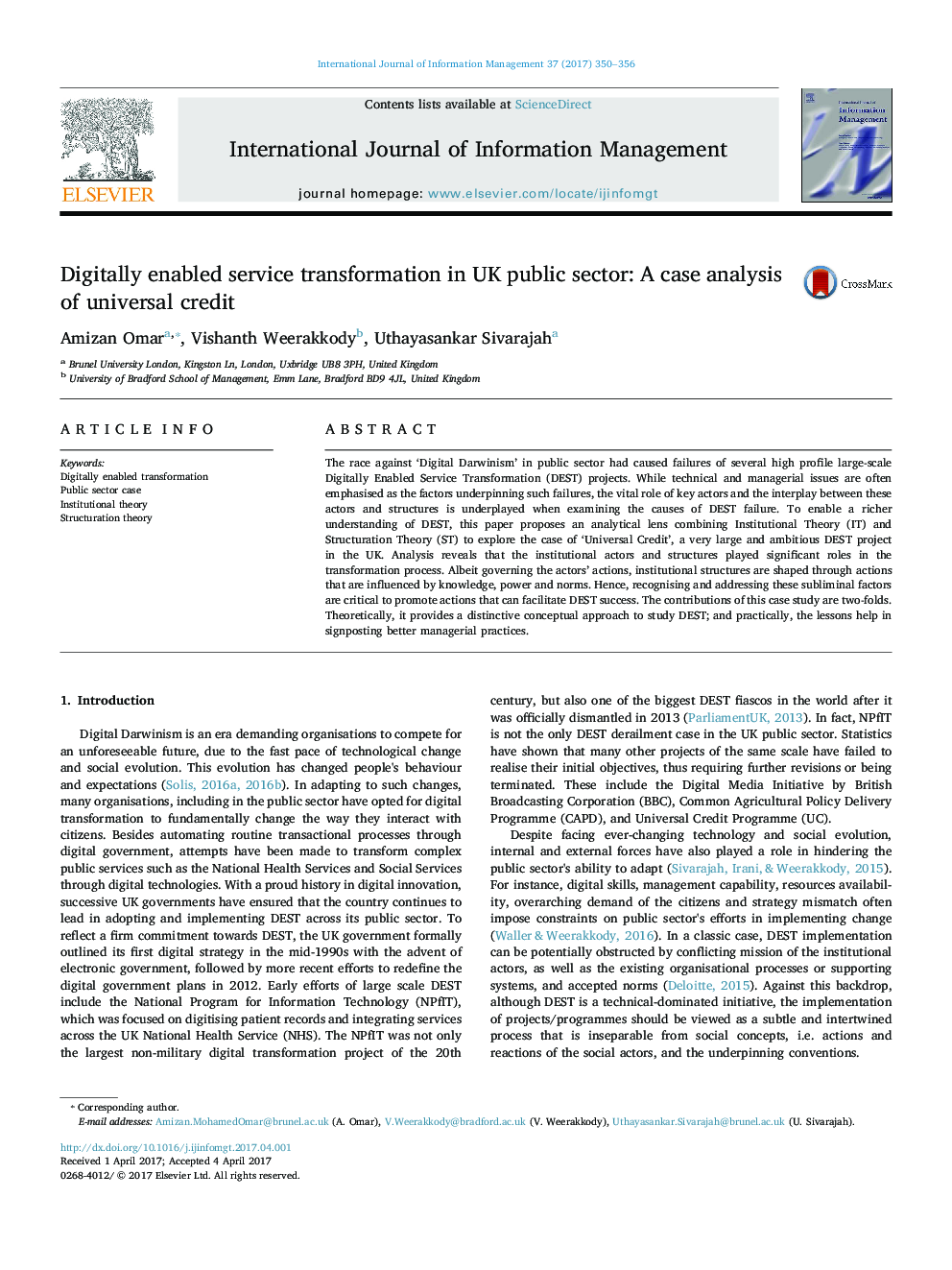| Article ID | Journal | Published Year | Pages | File Type |
|---|---|---|---|---|
| 5110734 | International Journal of Information Management | 2017 | 7 Pages |
Abstract
The race against 'Digital Darwinism' in public sector had caused failures of several high profile large-scale Digitally Enabled Service Transformation (DEST) projects. While technical and managerial issues are often emphasised as the factors underpinning such failures, the vital role of key actors and the interplay between these actors and structures is underplayed when examining the causes of DEST failure. To enable a richer understanding of DEST, this paper proposes an analytical lens combining Institutional Theory (IT) and Structuration Theory (ST) to explore the case of 'Universal Credit', a very large and ambitious DEST project in the UK. Analysis reveals that the institutional actors and structures played significant roles in the transformation process. Albeit governing the actors' actions, institutional structures are shaped through actions that are influenced by knowledge, power and norms. Hence, recognising and addressing these subliminal factors are critical to promote actions that can facilitate DEST success. The contributions of this case study are two-folds. Theoretically, it provides a distinctive conceptual approach to study DEST; and practically, the lessons help in signposting better managerial practices.
Related Topics
Social Sciences and Humanities
Business, Management and Accounting
Management Information Systems
Authors
Amizan Omar, Vishanth Weerakkody, Uthayasankar Sivarajah,
